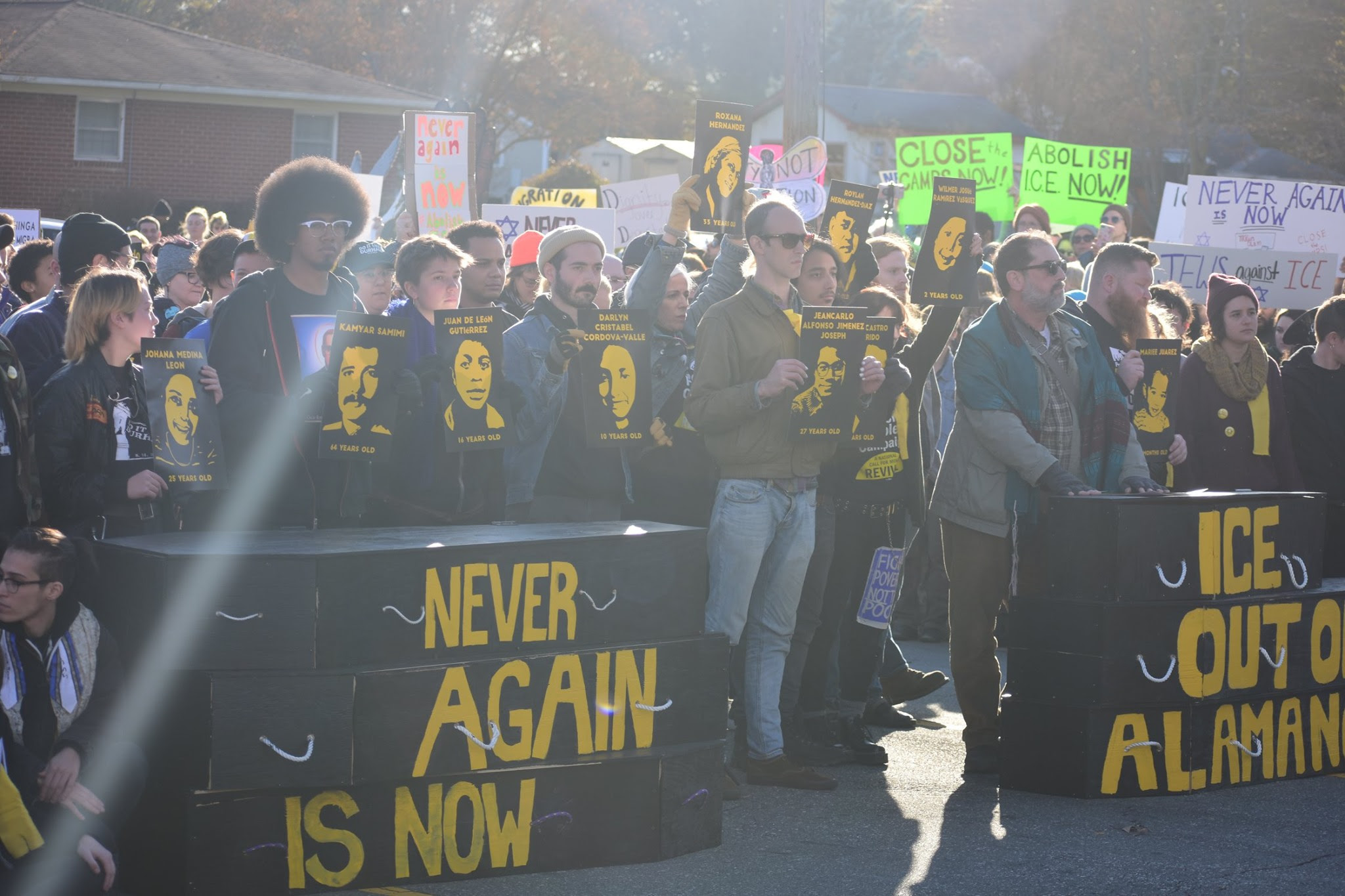As North Carolinians and as Jews, we are committed to welcoming all who seek the same promise of safety and prosperity that first drew many of our own ancestors to this land.
One of our core guiding principles at CJJ is V’ahavta L’reacha Kamocha (love your neighbor as yourself). Living into this value compels us to advocate for immigrant and refugee justice, because every person, no matter what we look like or where we come from, deserves to live with freedom, safety, and belonging. Here in North Carolina, we work with partners like Siembra NC, El Vínculo Hispano / The Hispanic Liaison, CIMA, and Communidad Colectiva; we also work closely with HIAS, both locally and nationally.
We are proud of our community members who help lead the Refugee Resettlement & Immigrant Justice Initiative at Judea Reform (JRC) in the Triangle. The Initiative has furnished more than ten homes for newly arriving Afghans and other refugees over the past six years. You can join Judea Reform's Refugee Resettlement and Immigrant Justice Team Meeting on the first Wednesday of each month at 7pm by sending an email to [email protected] to get involved with this local work.
You can help a newly arrived refugee child start school in the US with a backpack filled with the necessary school supplies. The Judea Reform Community is providing backpacks for 36 students who have recently arrived and will be starting school at the end of August. Sign up now, and deliver filled backpacks to JRC between August 4-17. All the details are on this link, including supply lists, and where and when to deliver the backpacks in August.
Additionally, the Initiative partnered with Jewish for Good and furnished the apartment of a single Mom and four kids after they had lost everything in an apartment fire at McDougald Terrace. One nice piece of furniture was donated by an Afghan family that no longer needed it and was glad to be able to help a community member. Judea Reform has a virtual Tzedakah Box at this link here. Your financial support will allow shoppers and schleppers to purchase groceries and personal hygiene items and deliver them to newly arrived refugees from around the world as they "land" in temporary housing here. These contributions preserve the limited funds allocated to each refugee by the State and allow resettlement agency staff to use their time providing case management rather than shopping for food and supplies.
Many of those in our movement are Jewish people whose ancestors faced conditions disturbingly similar to what we are seeing today at the border and in detention centers around the country. We know from our own history what happens when a government targets, dehumanizes, and strips an entire group of people of their civil and human rights. We will never let anything like the Nazi Holocaust happen again.
- CJJ Community Organizer Brandon Mond and
Roxana Bendezú, Executive Director of Migrant Roots Media,
in a co-authored op-ed published in the Burlington Times
 Photograph by Anthony Crider
Photograph by Anthony Crider

Showing 1 reaction